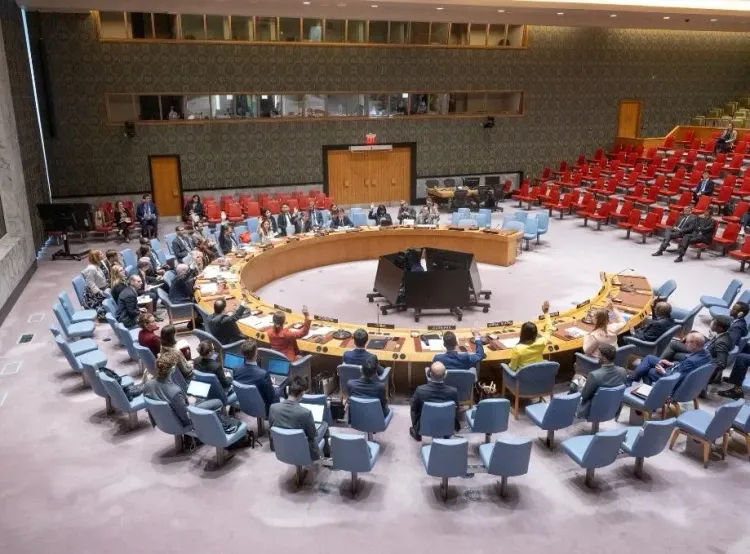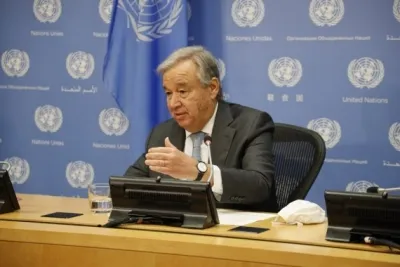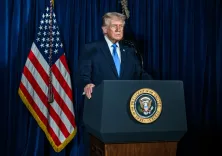Has the UN Extended the Authorization for Inspecting Vessels Violating Libya's Arms Embargo?

Synopsis
Key Takeaways
- UN Security Council has extended vessel inspection authorizations.
- Resolution 2780 adopted with 13 votes in favor.
- Russia and China abstained due to concerns over operational effectiveness.
- Inspection authorization aims to enforce the arms embargo on Libya.
- UN Secretary-General to report on implementation within five months.
United Nations, May 30 (NationPress) - The Security Council has passed a resolution to prolong the authorization for UN member states to inspect vessels suspected of breaching the Libya arms embargo.
Resolution 2780 prolongs for an additional six months the authorization for UN member states, either acting independently or through regional organizations, to inspect vessels on the high seas traveling to or from Libya whenever they have reasonable grounds to suspect that these vessels are transporting arms or related materials in violation of an arms embargo set forth by the Security Council, according to a report by Xinhua news agency.
The resolution calls upon the UN secretary-general to provide a report to the Security Council within five months of its adoption, detailing the implementation of this resolution.
With 13 votes in favor, Resolution 2780 was adopted, while Russia and China chose to abstain.
Representatives from Russia and China expressed concerns regarding the effectiveness of the EU operation, IRINI, which is the sole regional initiative authorized to inspect vessels. They also raised questions about the methods used for disposing of intercepted items.
The Security Council imposed sanctions on Libya, including an arms embargo, in 2011, following the political unrest that resulted in the ousting of former leader Muammar Gaddafi.
The UNSC’s Libya Sanctions Committee holds the authority to designate vessels under the Libya sanctions regime to prohibit transactions involving crude oil illegally exported from Libya aboard a designated vessel, as well as bunkering services (provision of fuel, supplies, or other servicing) for a designated vessel.
In June 2016, the council adopted Resolution 2292 to authorize inspections of vessels on the high seas to enforce the arms embargo.










